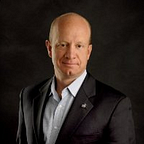You Need a Mentor
Especially if you think you don’t
Everyone should have at least one mentor.
The great advantage in having a mentor isn’t necessarily what they can teach you, but more in the environment that they help you create as you teach and develop yourself. They are also someone who helps you hold yourself accountable.
One of the great crimes that I’ve observed is the inability for people to hold themselves accountable.
It’s almost trained out of us through our upbringings, schooling and work environments that we are not able to hold ourselves accountable to metrics predetermined by ourselves or by others.
We look for someone to help us along or to check our homework.
The value of a mentor is having someone that fills that role, but does so in a way that ends up teaching us to be accountable for ourselves, instead of forever being our taskmaster.
Here’s the process I suggest you engage in:
Look around at those that surround you. Remember, most times you are the average of the five people you spend the most time with, in every facet of your life.
Look for someone you could insert into those five people that will raise the average. Visit with them and say, “I want you to be my mentor. I want to be accountable to you and I give you full permission to be kindly, but brutally, honest with me whenever you see me doing something you think is below my potential. Or if I could do better. Or from time to time give me positive feedback.”
That person doesn’t necessarily need to be above you in the organizational food-chain, but they do need to be someone for whom you have respect as an individual. Have that purposeful upfront conversation and give them the parameters that you want them to observe you under, and measure you by, and, most importantly, permission to have that brutally honest conversation (or series of) with you.
In my own life, as I have set up this environment for myself. It has sometimes been extremely painful. There have been times where I have wanted to rescind that authority for someone to give me that brutally honest feedback, but I am always appreciative of it — particularly after I have gotten over the emotion of the moment.
It helps me hold myself accountable.
It’s very similar in sales management. The secret in sales management isn’t to chew out the salesmen when they aren’t’ doing well — that’s “old school.”
The secret is to sit down and say, “Hey Bob, I was going over your sales numbers…” and you pause right there. If Bob is an employee worth keeping around, he’ll immediately give you all the reasons why he’s not performing, the things he wants to improve, and give himself a review more frank than you could ever give him. He will leave that conversation thinking well of you because it was a pleasant enough conversation.
By making people aware that you know their numbers, they create in themselves a self-accountability because they know your knowledge and that there’s no hiding from the data. This encourages them to work proactively and hold themselves accountable far in excess of the fact that you were watching their numbers or not.
It might sound a bit like a scare tactic in writing, but people who know the metrics by which they are measured perform better than those who don’t.
Same thing with a mentor. They know your numbers. They are watching you. They have been appraised of the need to watch you because you are looking for their feedback.
Some mentors are better than others. Some you’ll need to adjust over time because your preconception of the value they’d add doesn’t quite meet your expectations or current needs.
Never rid yourself of a mentor at the peak or at the nadir of life. Always shed them, if you need to make an adjustment, when things are back to normal.
You could also watch them and follow their lead in the normal mentorship way. Do as they do, speak as they speak.
From a lot of the people that I watch and observe and learn from, I find myself copying some of their vocabulary or habits. That version of plagiarism I think is just fine, because I have told them that I’m watching them and by virtue of that I have implied permission to do some of the things they are doing or trying to do.
That’s why you should have a mentor. To make you the best possible version of yourself which, coincidentally, provides benefit to the mentor as well.
If you choose the right person and lay the proper foundation for their mentorship, you will have some great, great conversations from time to time. Some painful, some pleasant, but all valuable.
Aaron Webber is a serial entrepreneur and CEO of Webber Investments LLC, as well as a Managing Partner at Madison Wall Agencies.
If you liked this post, please press the like button and leave any questions or comments below.
Check out my Quora, & LinkedIn pages for more.
